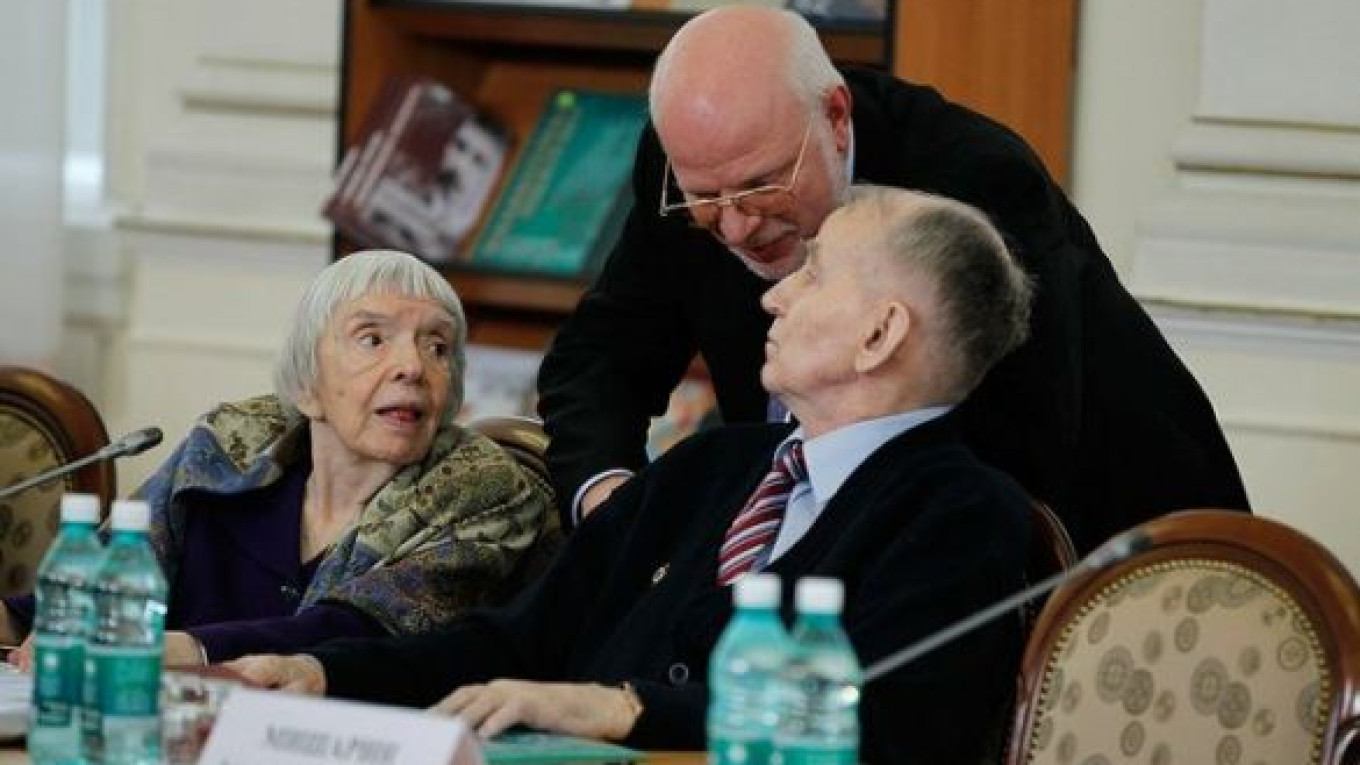An author of Russia's 1993 Constitution, Sergei Alexeyev, died after suffering a heart attack in St. Petersburg on Sunday. He was 88.
Alexeyev had the heart attack on May 9 and died in the hospital three days later, colleagues told national news agencies.
Alexeyev began work on the Constitution in late 1991 as a member of the working group of the Russian Movement for Democratic Reform. The two other ideologists were Anatoly Sobchak — a mentor of President Vladimir Putin — and Sergei Shakhrai.
The document was controversially adopted in 1993 amid a constitutional crisis that resulted in a stand-off between President Boris Yeltsin and the parliament. It replaced the Soviet-era Constitution of Russian Soviet Federative Socialist Republic, approved April 12, 1978.
In 1993, Alexeyev was appointed a member of the president's council and then to the presidential human rights council. He quit two years later in protest against the outbreak of hostilities in Chechnya and returned to his native Urals. He moved to St. Petersburg about a year ago.
A member of the Russian Academy of Sciences and winner of both the State Prize of the U.S.S.R. and the prestigious Demidov Prize, Alexeyev was also the founder and first director of the Institute of Philosophy and Law, a Ural branch of the Russian Academy of Sciences, and the founder of the Urals School of Civil Law. More than 400 of his works have been published, and his writings are cited in nearly every textbook on jurisprudence.
Born on July 28, 1924, in Oryol, Alexeyev fought in World War II on the Volkhov, Leningrad and Karelia fronts. After the war, he graduated from the Sverdlovsk Institute of Law.
He will be buried Friday in St. Petersburg.
A Message from The Moscow Times:
Dear readers,
We are facing unprecedented challenges. Russia's Prosecutor General's Office has designated The Moscow Times as an "undesirable" organization, criminalizing our work and putting our staff at risk of prosecution. This follows our earlier unjust labeling as a "foreign agent."
These actions are direct attempts to silence independent journalism in Russia. The authorities claim our work "discredits the decisions of the Russian leadership." We see things differently: we strive to provide accurate, unbiased reporting on Russia.
We, the journalists of The Moscow Times, refuse to be silenced. But to continue our work, we need your help.
Your support, no matter how small, makes a world of difference. If you can, please support us monthly starting from just $2. It's quick to set up, and every contribution makes a significant impact.
By supporting The Moscow Times, you're defending open, independent journalism in the face of repression. Thank you for standing with us.
Remind me later.


